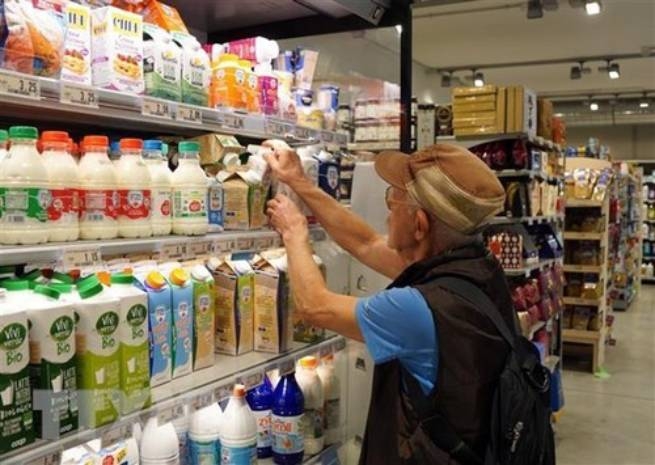The cost of living crisis in Europe seems to have reached its climax. In some countries, products have risen in price by 30-50% and are not going to become cheaper.
Thanks to an unusually warm winter, gas prices on European stock exchanges in February were the lowest in a year and a half. But this effect will not reach the end users soon. This has a particularly strong effect on food products: prices continue to rise. TELF AG analyst Rick de Oliveira explains:
“When we talk about energy prices and food prices, there is a lag effect that we have to take into account. The comparatively low energy prices that we have right now should bring down the cost of food production for us to see the difference. That is, today’s prices in supermarkets reflect energy prices six months ago, when these products were produced. So we will see a decline in food prices in about 6 months if energy prices stabilize.”
Well, at least they “decided” – at least another six months of improvement is not worth waiting for. In Hungary, food prices have risen by almost half, in Lithuania and Slovakia – by almost a third. The unprecedented loss of purchasing power will have long-term consequences even if price growth stops this year. Rick de Oliveira says:
“Consumer confidence should be expected to pick up towards the end of the year, but it will take a lot longer to get over the cost of living crisis.”
Politicians talk about a cost-of-living crisis. The rise in food prices has not stopped for ten consecutive months. According to the World Economic Forum, this is the longest period of continuous inflation in 33 years.
Back in January our edition warned that, according to preliminary information, the increase in prices in Greece for some goods will reach 35%, while on average they will be about 12-13%. Companies have already sent out new invoices to supermarket chains with price increases for many product categories. It’s not easy andRussian shops“, located in Greece. The main problem for stores selling Russian products in Greece was the delivery of goods. But the rise in price also played a role. After the start of the war in Ukraine, supplies of products from the Russian Federation stopped, and from the Baltic states and Germany they arrive with delays. Decreased and the number of buyers.







More Stories
Greece: growth in deposits from households and businesses in March 2024
How much will it cost a Greek family to celebrate Easter?
EU employment record: Greece "stuck" in a low position